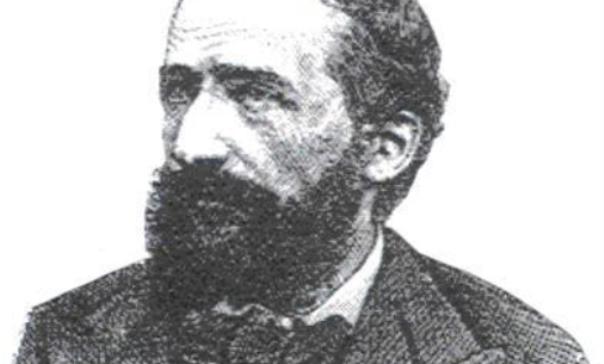
Jan Herman Zukertort: photo - Wikipedia
British GM Stuart Conquest led the ceremony at the newly restored grave of Zukertort, who died in 1888, at London's Old Brompton Cemetery.
The inscription on the tombstone describes Zukertorf as one of the best chess players of all time, chess world championship title contender and the greatest Polish sportsman of the 19th century.
The dedication ceremony brought together a group of British chess historians and leading representatives of the Polish community in Britain.
Marek Stella Sawicki of the Polish Heritage Society in the UK said in his speech that “the renovation of the grave of the Polish chess genius links the history of Polish sport with the forthcoming Olympic Games in London.
“Zukertorf was the first Polish sportsman of world calibre who achieved fame at a time when Poland did not exist on the map of Europe [partitioned between the three neighbouring powers],” he said.
Born in the Polish city of Lublin in 1842, Zukertorf settled in London in the early 1870s and died there in 1888. He was buried at Brompton Cemetery, one of London's most elegant Victorian graveyards, but with the passing of time his grave had sunken lower and lower and had been covered by grass.
Some years ago it was identified by the Polish Heritage Society, a charity organization which promotes among the British public the contribution of Poles to the common cultural and historical heritage within the United Kingdom, and, independently, by former British Chess Champion and GM Stuart Conquest.
They collaborated on a scheme to put up a more suitable upright stone to honour the memory of Zukertort. The renovation of the grave was financed by the Polish Heritage Society, the Polish Foreign Ministry and the chess federations in Poland and the UK.
Zukertort's most significant success was his victory at the 1883 London tournament, well ahead of the world's best players of the time, including Wilhelm Steinitz.
He later contested what has become accepted as the first official world chess championship match in 1886 against Steinitz which he finally lost after an early lead.
In his prime Zukertort also excelled at playing while blindfolded. His pupils included Randolph Churchill, the father of Winston Churchill.
He died of a stroke, which he suffered while playing the game he loved.
Among his possessions found in his apartment were a snuffbox with the portrait of the Polish national hero Tadeusz Kościuszko and a copy of ‘The Crimean Sonnets’ by the Polish Romantic bard Adam Mickiewicz. (mk/pg)